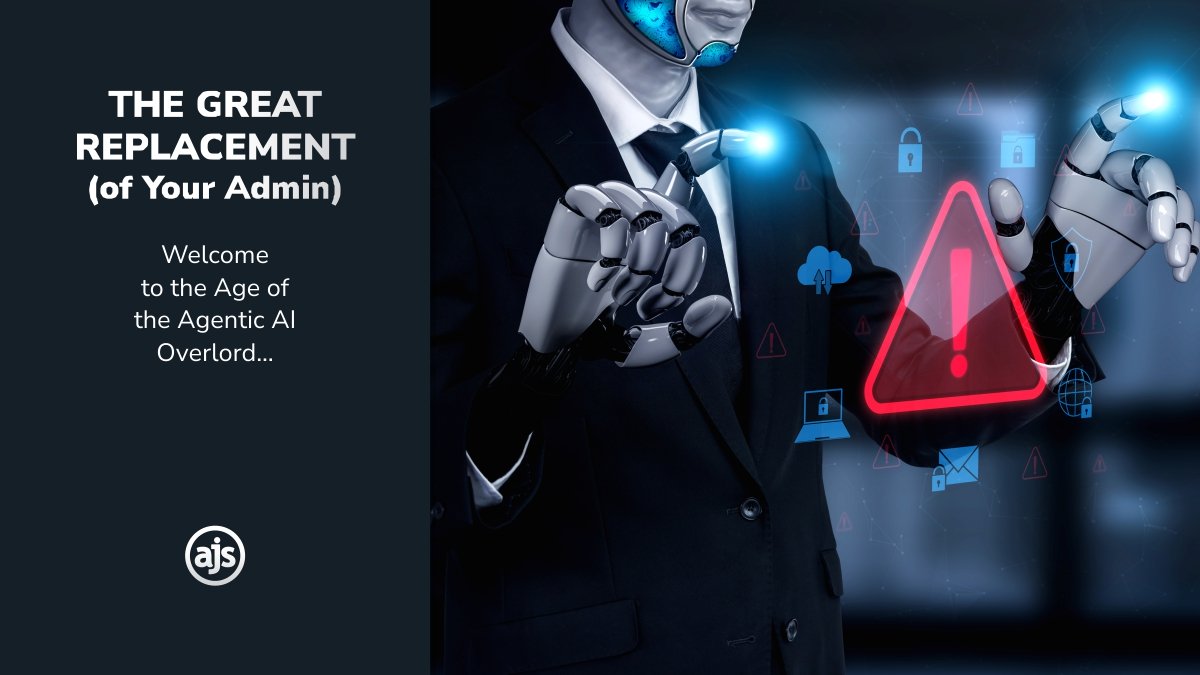
A one-of-a-kind Country: Part III
Corruption…
You simply cannot get away from it.
It’s literally in our daily news. And not only during serious debate. But in a manner of “if you don’t laugh you will cry” kind of thing. Take the illustrious Zapiro as an example – renowned for sketching his views on just about any matter – political or otherwise – no one and no subject is “safe”.
It seems that no matter where we turn the word “corruption” runs rampant – in the public sector as well as the private sector (step in the infamous Markus Jooste). It seems like everyone is in on it – lavishly feasting on the ill-gotten gains from a festive party that only the rich of the rich and the connected of the connected were invited to. The very definition of gluttony. The gluttonous participants having skeletons throwing mad parties in their closets, not hiding away as they rightly should be.
And the rest of us sit with a practiced shocked expression “No?! You lie?” at yet another tale of woe about a state-owned entity facing total collapse. But how can we fain surprise (any longer)? Haven’t these “feasts” become the accepted status quo?
It’s a never-ending story of greed and money grabbing, “looking out for number one”, hungry for power, no matter the cost. An outright and in your face disregard for the Law.
But this is our Country. South Africa is in our blood. And whilst in no way a direct comparison, the title of the novel by Alan Paton “Cry, the beloved country” rings true throughout the hearts and minds of all South Africans living through today’s times.
It’s a sad reality.
Immigration is happening at an unprecedented rate.
At this stage, we can assume that we all have a cousin in Australia or Canada or even the United Kingdom.
We know – that’s a lot of doom and gloom. But it is also truthful. To deny it would be delusional. And irresponsible. You see, for all intents and purposes, South African “gees” seems to have gone out the window.
Ø Pronounced: gh-hee’s – an Afrikaans word for “spirit” often used to describe a positive vibe. E.g.: I like this place, it has gees!
But let’s put emotions aside and look at some hard facts to gain perspective.
ANTI- Corruption Legislation
It’s extremely hard to ignore that South Africa is known for its rampant corruption. It’s everywhere – state enterprises, government, private companies. You name it.
And this is despite a robust anti-corruption framework.
Professor John C Mubangizi, (Dean: Faculty of Law, University of the Free State) quoted Tom Lodge in his opinion paper Corruption in South Africa: The politics, the law and all the shenanigans in between as follows –
“Corruption becomes systemic when corrupt activity begins to appear at all levels within a political system and when it becomes repetitious, constituting a parallel set of procedures to those which properly constitute the formal functions of the bureaucracy.”
And this sounds rather familiar. To us.
As Professor Mubangizi in the afore-mentioned opinion paper set out –
“Although the word “corruption” is not mentioned anywhere in the South African Constitution, several provisions in the Constitution have direct or indirect bearing on it. Not only does the Constitution create certain offices to ensure transparency and accountability of government officials, it also contains anti-corruption provisions that span across a large variety of sectors such as administration, public service, security services, finance, etc.”
And it doesn’t stop with our Constitution.
There are the following Act’s aimed directly at Corruption –
1. The Prevention and Combating of Corrupt Activities Act 12 0f 2004, which regulates the general offence of corruption and offences in respect of corrupt activities relating to public officers, members of the legislative authority, judicial officers and members of prosecuting authority;
2. The Prevention of Organised Crime Act 121 of 1998, which provides for measures to combat organised crimes, money laundering and criminal gang activities;
3. The Protected Disclosures Act 26 of 2001, which makes provision for the procedure in terms of which employees and workers, in the private and public sector may disclose information relating to unlawful or irregular conduct by their employers or employees;
4. The Public Finance Management Act 1 of 1999, which was adopted to modernise financial management by ensuring transparency, accountability and the sound management of revenue, expenditure, assets and liabilities of provincial and national governments;
5. The Municipal Finance Management Act 56 of 2003, which provides for sustainable management of the financial affairs of municipalities and other institutions in the local sphere of government;
6. The Companies Act 17 of 2008, which not only provides for the incorporation, registration, organisation and management of companies, the capitalisation of profit companies, and the registration of offices of foreign companies but also defines the relationships between companies and their respective shareholders or members and directors (holding Directors personally liable for any loss, damages, or costs incurred by the company);
7. The Public Services Act 103 of 1994, which requires the Minister to make regulations on a Code of Conduct in terms of which public servants must act in the best interests of the public, act honestly in dealing with public money and report fraud and corruption
(as per Prof John Mubangizi).
There’s no denying that we have anti-corruption laws up to our elbows. And yet, despite all of that, we are still in the throes of corruption scandal aplenty.
It extends beyond Jacob Zuma
It pains us to regurgitate the negativity around corruption in South Africa, but it’s safe to say that (as Tom Lodge set out), it’s systemic.
In fact according to Corruption Watch’s annual report for 2021 –
“Over 3,200 whistle-blowers across South Africa reported allegations and experiences of corruption and other forms of misconduct to Corruption Watch, bringing the total number of complaints received since 2012 to 36,224. Corruption Watch stressed that for the last decade South Africa’s government has failed in its efforts to make real inroads against the root causes of corruption… South Africa has high corruption within its public sector.”
The three most common forms of corruption according to Crime Watch?
1. Maladministration;
2. Procurement corruption, and
3. Abuse of authority.
And this explains – rather well – the downfall of Eskom. In an in-depth opinion piece by Mail & Guardian titled Eskom’s death spiral caused by policies and political choices, it’s made clear that three most common forms of corruption have intertwined themselves with our energy provider –
“Eskom is often characterised as a nationalised public utility and its deterioration is seen to be a consequence of gross mismanagement by the government, purported to be a given, as a result of Eskom’s monopoly over the energy sector.
This is partly true but what stifled the utility before and during years of parasitic corruption, known now as state capture, is a contradiction between its public ownership and its corporatised mandate.
This creates an impossible task — to provide electricity as a universal public good, while at the same time needing to make Eskom profitable by selling electricity to people, who for the most part are unable to afford it.
The gradual corporatization of Eskom and the push towards privatising South Africa’s power system are a central moment in the ANC’s adoption of neoliberalism as a guiding philosophy for governance and macroeconomic policy.”
And with no other option but to seek aid from wealthier, more powerful allies, South Africa has now purportedly completed its plan to show France, Germany, EU, UK and US how we will reduce our carbon emission to secure the pledged $8.5bn to help us transition to renewable energy (which by all accounts will take three decades costing a realistic figure of $250bn for a total clean energy transition). As we said before – there’s a lot at stake here.
In a book by Mpumelelo Mkhabela’s titled The Enemy Within, Mkhabele looks at how we got into the mess we are in –
“that the African National Congress (ANC) lost the fight against corruption by tolerating corrupt practices, failing to hold the corrupt to account, and going as far as to shield them.” (The Conversation).
The words “state capture” (known elsewhere as kleptocracy) and the names “the Gupta Brothers” unashamedly linked with our erstwhile President, Jacob Zuma ring loudly in our ears right now. The details of which need no explanation. We all know.
Ø Kleptocracy – government by those who seek chiefly status and personal gain at the expense of the governed
It’s hard to disagree that the occurrence and extent of corruption is at a level most of us would not have believed. Listing them all would be too vast for this article alone. And most likely, too distressing.
But, it must be noted that a consequence of the years of State Capture sees South Africa (as soon as February 2023) being grey listed by the Financial Action Task Force (FATF), which according to Glacier means that South Africa will be “under increased monitoring by the FATF”. The economic impact whereof will see the increase in “transaction costs for cross-border payments, as well as the general reputational impact of a grey-listing. Global financial firms and banks will be required to apply enhanced due diligence to any South African client, leading to more invasive and extensive processes of assessing the source of funds and probity of clients”.
Is South Africa doing anything about corruption?
You “betcha”!
As South African’s, we always look at a way to “fix the problem” and if it wasn’t for the robustness of South Africa’s institutional safeguards, civil society NGOs, and democratic culture, we may not have found our way towards the light –
1. The Zondo Commission – taking 400 days, with over 300 witnesses testifying, Chief Justice Raymond Zondo delivered a forensic report of over 5,000 pages (known as the Zondo commission) that laid bare how state resources were plundered. “The evidence revealed how ANC leaders, including former and current government ministers, allegedly participated, or encouraged looting at a massive cost to the country. The blurring of lines between the ANC and the state was laid bare, party interests were prioritised, crucial government departments were used for the benefit of individuals, resulting in manipulation and political influences. The ANC under Zuma permitted, supported, and enabled corruption” (the BBC).
On 23 October 2022, President Cyril Ramaphosa addressed the Nation regarding the steps that will be taken to address the numerous acts of corruption set out in the Zondo Commission report. One of which is the establishment of a permanent independent Public Procurement Anti-Corruption Agency to “combat corruption, fraud and maladministration”. The President also outlined the following during his address –
“The people of South Africa are tired of corruption and want it to end.
Those who are involved in corruption, or who are even thinking about engaging in criminal conduct, must know that all the instruments of the state will be used to bring them to book.
There will be no place for corrupt people, for criminal networks, for perpetrators of state capture to hide.”
And while we are all hopeful, all we can do is sit and await the retribution promised to us.
In the interim, the so-called “king-pins” of State Capture, the Gupta brothers were arrested in Dubai (June 2022) and now face extradition to South Africa in order to be tried for their crimes.
2. Restructuring of Eskom – lenders to Eskom Holdings have hired financial advisers PwC as South Africa’s State-owned power utility restructures its business. “Bondholders appointed advisers Moelis & Co. and law firm Akin, Gump, Strauss, Hauer & Feld earlier this year. Eskom is working with its own adviser Lazard to split its transmission, generation, and distribution units to help manage its debt and improve performance.” And following this, we wait to see how Eskom can be restructured, saved, or laid to rest.
3. Reserve Bank seizes former Steinhoff CEO Markus Jooste’s assets – what has been referred to as the biggest corporate scandal to ever have occurred in South Africa, the Steinhoff saga has revealed “not only the infamous dealings of Markus Jooste but also how corruption in the private sector all too frequently flies beneath the radar” (Daily Maverick). The South African Reserve Bank has finally (since the implosion of Steinhoff in 2017) been granted an ex parte application in the Western Cape High Court to attach all assets linked to the infamous ex-CEO Markus Jooste. On 18 October 2022, the Scorpions attached “about R1.4-billion worth of art; financial assets and loans receivable held by Silveroak Trust; Jooste’s property in Voëlklip, Hermanus; as well as Lanzerac wine farm in Stellenbosch”. Signaling the end to corruption in the private sector? We wait to see.
Whilst not an extensive list of everything South African authorities are doing to end corruption, it does appear (on the face of it) that the instances of corruption that has rocked South Africa to its core are finally seeing the light of day. Justice is (seemingly) being served.
And hope, as we all know, springs eternal.
Are we sinking in the corruption quicksand, alone?
This paragraph is not included as a “last-ditch” effort to absolve South Africa of its corruption sins, but rather to illustrate John Emerich Edward Dalberg premise of –
“Power tends to corrupt, and absolute power corrupts absolutely. Great men are almost always bad men, even when they exercise influence and not authority. There is no worse heresy than that the office sanctifies the holder of it.”
1. Boris Johnson who was accused in January 2022 of corruption after the ‘great exhibition’ texts emerged, eventually lead to his resignation after many of the senior officers of state resigned, were sacked or indicated no faith in his leadership. And by Johnson stepping away, the United Kingdom had hoped that the time had come for stability, competence and a boring politician who could steady the ship of state. But to everyone’s dismay, his successor, Liz Truss resigned after only 6 weeks in office! In a surprise twist, talk circulated over the weekend that Johnson would once again stand for Prime Minister. This, despite the stories of corruption that surfaced prior to and following his resignation. However, as it turns out, Johnson has confirmed that he will not stand in the running to lead the Conservative Party – ending the “short-lived, high-profile attempt to return to the prime minister’s job”.
2. And of course, Donald Trump who is accused of corruption and conflicts of interest to the enth- degree. He’s currently in the throes of a number of investigations. A criminal investigation (which could result in charges being filed) relating to the removal of government documents from the White House, a civil litigation relating to allegedly overstating the value of real estate, to get more favourable loans and better tax rates. A fraud lawsuit which alleges that the Trump family inflated their net worth by billions, seeking $250m (£226m) that was allegedly obtained through fraudulent means. As well as an additional criminal investigation looking into Trump’s alleged role in the attack on the US Capitol on 6 January 2021 (the BBC).
Corruption seems to have the innate ability to weave its way into the hearts of politicians farther afield than South Africa. Which means, we are not sinking alone in the corruption quicksand.
There is no doubt that South Africa is a one-of-a-kind country. Despite the issues we face – a hope for a corruption free tomorrow still lingers. It’s a land full of amazingly unique people. People who hang on to hope. And people that (still) speak of tomorrow with enthusiasm and “gees”.
We can remain “Proudly South African” by recognizing what has gone wrong, but also seeking ways to correct those wrongs. It may take time. But we will get there!
As a proudly South African company, AJS remains hopeful in what there is still yet to come. For all South Africans.
– Written by Alicia Koch on behalf of AJS





Pingback: REFLECTIONS: Reflection for progression - AJS South Africa